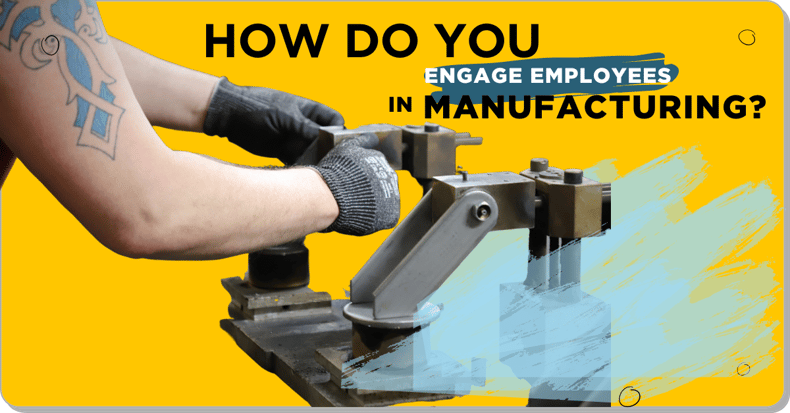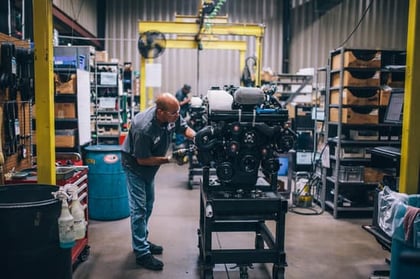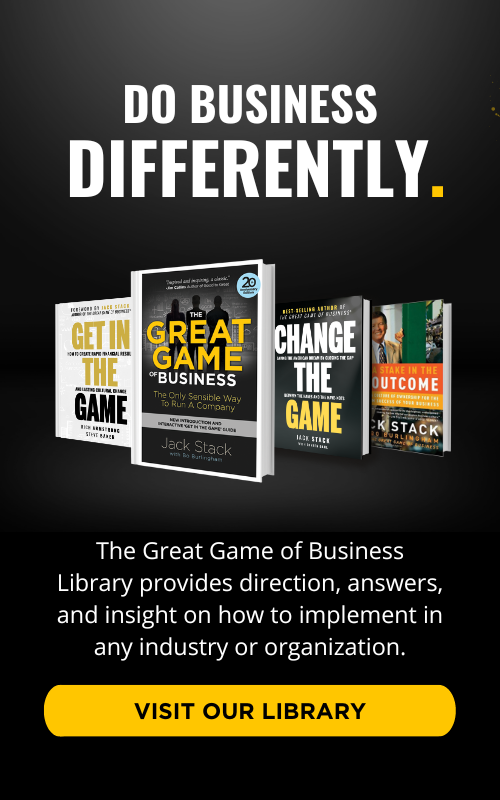 More and more companies these days have begun to pay attention to the topic of employee engagement as a way to help drive their future growth and workplace culture. Unlike the days of old, when workers - especially those on the frontline - were expected to do little more than punch a clock and perform rote tasks, today’s leading organizations have come to appreciate how valuable it can be for manufacturing workplace culture in particular when employees throughout every level of the company bring their passion and creativity with them to work every day.
More and more companies these days have begun to pay attention to the topic of employee engagement as a way to help drive their future growth and workplace culture. Unlike the days of old, when workers - especially those on the frontline - were expected to do little more than punch a clock and perform rote tasks, today’s leading organizations have come to appreciate how valuable it can be for manufacturing workplace culture in particular when employees throughout every level of the company bring their passion and creativity with them to work every day.
That’s certainly the case at Central States Manufacturing, a leader in the metal building component industry. Originally based in Lowell, Arkansas, the company now operates six facilities around the country and employs some 530 workers – an expansion the company credits at least in part to its efforts to engage its people, especially those working on the front lines of the business. The team at Central States even earned an All-Star Award at the 2012 Gathering of Games for the results their company has seen through playing The Game.
Recently, we caught up with John Williams, retired Vice President of Sales and Marketing at Central States and Great Game of Business Certified Coach, to ask him why engaging frontline employees matters and how his company does it.
Q: How do you define employee engagement in manufacturing?
JW: I define employee engagement as something someone is passionate about. If you can connect with someone about something they care about and in a way where they feel like they are making a difference in the organization, that’s engagement. If you can do that, the person will tie the company's performance back to what they are doing on an everyday basis. That also makes them more productive, which leads to a stronger performing organization and a better manufacturing work environment.
Q: Why is engaging your frontline employees in particular so important?
JW: As someone who started out working on the frontlines as a maintenance worker, I know that the frontlines are where the action is. It’s where your product is getting manufactured or where you are talking to your customer about your service. Your frontline workers are the face of your company to your customer. That’s what makes it so important. When engaging your frontline in the business, you can motivate manufacturing employees to take good care of your customers.
Q: How to measure employee engagement in a factory setting?
JW: There is no single way to do it. We use several tools, including a survey we send to our employees. We also use turnover and exit interviews as a way to gauge people’s passion and issues. We also look at the overall importance of safety training in boosting employee engagement in a manufacturing company. If someone is engaged, for example, they will be safer. You can also look at how many positions within the company are being filled internally. If you see people wanting to move up and do different things in the company, you know they are engaged, which in turn increases your employee retention in factories across the organization.
Q: So, how do you go about engaging someone?
JW: The most important thing to recognize is that everyone is an individual and is motivated by different things. Some people are motivated by the kinds of projects they work on. Others care more about money. And some of us want more support or recognition. If you want to engage someone, you need to understand that person as an individual to understand what’s important to him or her.
Q: What are some of the particular challenges to engaging the frontline?
JW: First, you must ask yourself, what do manufacturing employees want? People working on the frontline have a different frame of reference than someone on the management team. What I mean by that is that a frontline worker is typically focused on doing their job as well as they can today. But they aren’t necessarily worried about the company’s strategy in ten years like an executive might be. Companies make the mistake of trying to get the frontline worker to think like an executive. But that will never happen. You need to understand the frame of reference and work with it.

Q: What’s an example of how that might work?
JW: Think about a bonus plan. For a frontline worker, having an annual bonus plan means little to them until maybe November. But if you can cut the time frame down to, say, a monthly bonus, it will engage and motivate them more on a daily basis to meet their goals.
Q: Are there other common mistakes companies make when it comes to engaging the frontline?
JW: I think there is a crazy misconception that the human resources department is supposed to do all of this. To hire, recruit, and motivate. I disagree. I think HR can support these efforts and provide tools. But it’s the company’s leaders' job to ensure employees are engaged and growing.
Q: So even though you’re in a sales and marketing role, engaging the frontline workers is still important to you?
JW: Absolutely, because they are the ones who touch our customers every day. Everything they do reflects on the company and not necessarily on them as individuals. We are a sales-driven organization, and the people on our frontline – the production people, the truck drivers, or the salespeople – are the reasons our customers buy from us. It’s not because of John Williams. That’s why getting everyone on the frontlines engaged in their jobs is so critical to the entire organization's success.
.png)








.png)




-5.png)

